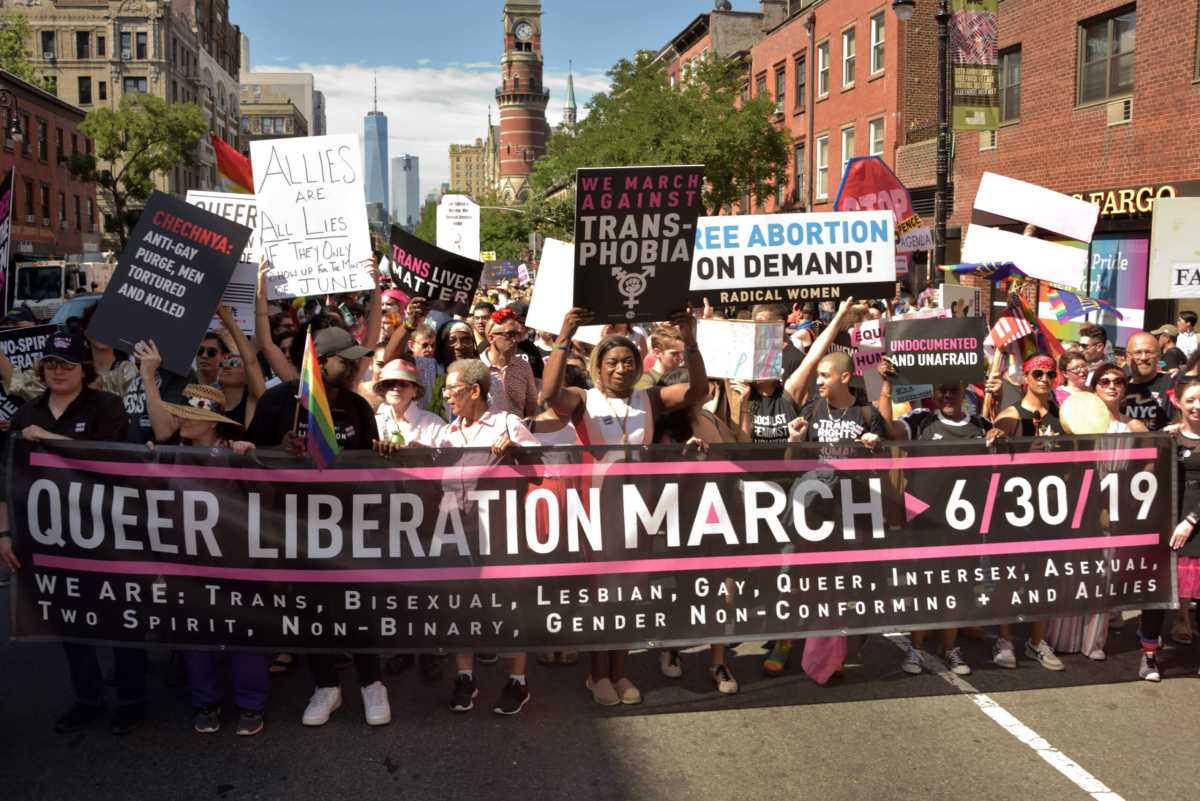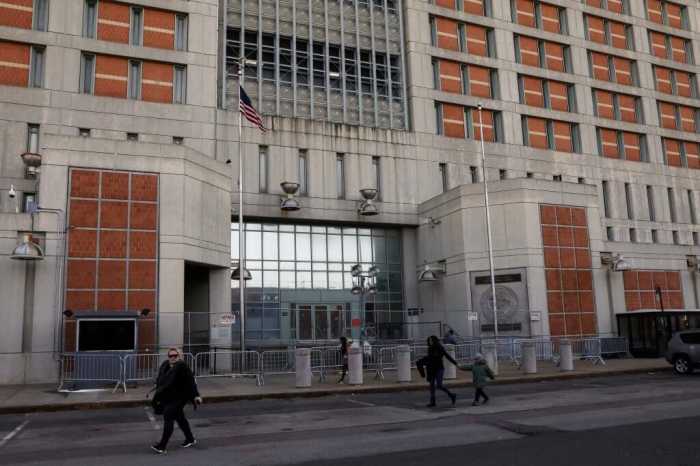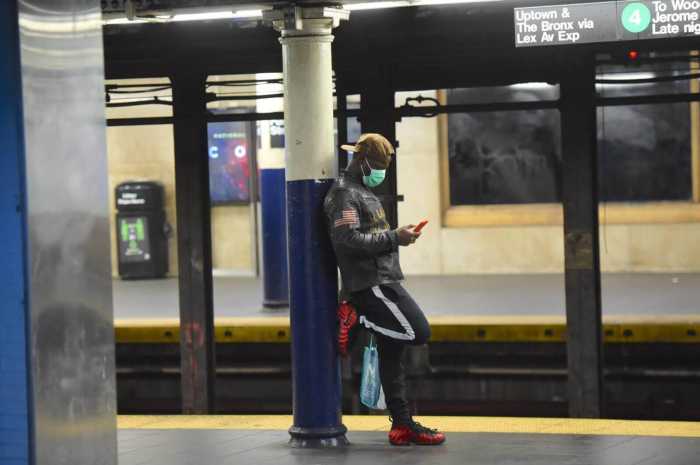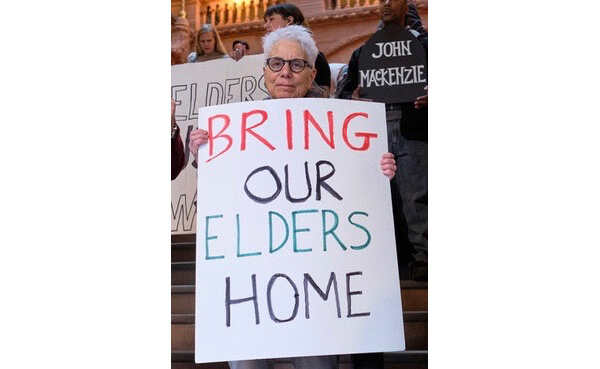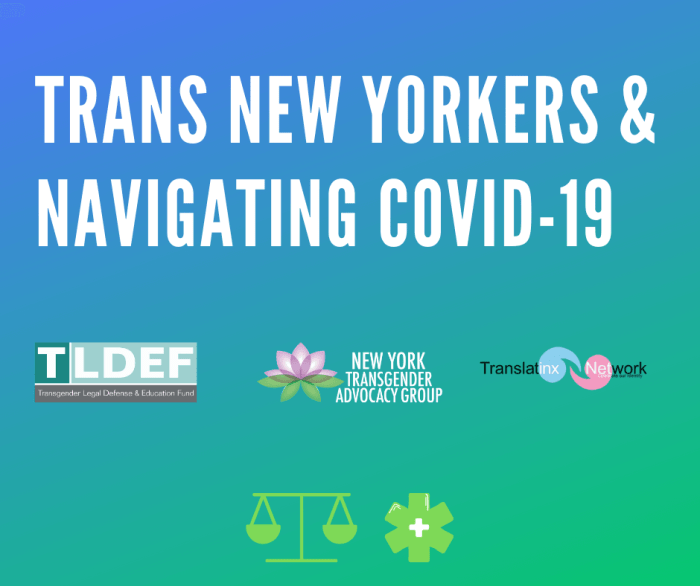Members of the Reclaim Pride Coalition, which hosted the first Queer Liberation March on Pride Sunday last June, have temporarily redirected their focus from organizing a second event for this year’s Pride to assisting queer folks who are facing emergency needs during the coronavirus crisis.
“Once the crisis started hitting the community and the reality of what we were facing settled in, we were able to pivot and say, ‘Actually, we don’t know if there is going to be a public gathering of Pride this year,’” Quito Ziegler, a member of the Reclaim Pride Coalition, said in an interview with Gay City News.
So, the Coalition is pausing its negotiations with the NYPD about Pride festivities.
“We decided to suspend the primary organizing of Pride for a minute and make sure our people were OK.”
To that end, the Coalition is focusing on supporting three key demographics: homeless queer youth, vulnerable Black trans people, and sex workers who are incarcerated at Rikers Island. Members are advocating for the release of those in detention at a time when the lack of social distancing in prisons put them at increased risk for COVID-19. Homeless individuals living in shelters are, too, facing elevated risk for similar reasons: many are living in environments where people are in close proximity and cannot abide by social distancing guidelines.
Because of the dual health and economic crises, as well as the temporary shuttering of many non-profits that have long provided services to vulnerable populations, the Coalition has worked to foster a grassroots network to rally support for those in need. That means spreading the word about mutual aid fundraisers, encouraging those who have room in their homes to offer shelter, and even asking if folks who work at hotels to explore affordable avenues of housing in those venues. At the same time, the Coalition is also ramping up calls for rent relief.
Quito estimated that at least 70 neighborhood organizations across the city have stepped up during the crisis, like Bed-Stuy Strong, a group that boasts 2,400 volunteers who have raised thousands of dollars and delivered groceries and supplies to hundreds of people in that community. Aiming to leverage impact through solidarity, the Reclaim Pride Coalition is working to shine a spotlight on those mutual aid efforts and other fundraisers that can bolster homeless services and shelters serving queer folks, such as New Alternatives and Sylvia’s Place at the Metropolitan Community Church of New York.
Yet, just as the healthcare sector has entered uncharted territory with the emergence of makeshift hospitals in event venues and parks to meet demand in the city, the Reclaim Pride Coalition is also thinking outside the box about possible solutions that would have seemed impossible just weeks ago. Ziegler has corresponded with other members in emails about one advocate’s idea to explore the possibility of turning temporarily-shuttered queer spaces into emergency housing for LGBTQ homeless youth. Some ideas have included the LGBT Community Center in Manhattan, gay bars, and queer-owned businesses and cultural centers.
But that is already proving to be a challenging endeavor. One person in that email chain, which was shared with Gay City News, said an employee at The Center told them, “I honestly don’t think The Center has any capacity to run that place as a shelter (there are no showers also) and we are on a very strict no body enters rule.”

Still, the Coalition’s organizing effort represents an example of the way in which grassroots-led movements are forming or repositioning themselves during the coronavirus crisis based on unprecedented circumstances and a spike in demand for basic necessities. It also reflects the reality that marginalized populations are turning to the general public for help because they have become frustrated with elected officials and government leaders who have not stepped up to help those in need or effect a mass release of incarcerated individuals despite the potentially lethal health consequences they face.
“The big message here is the city is not adequately addressing these needs,” Ziegler explained. “And our people are at extreme risk and need resources to shelter in place.”
There are multiple fundraisers in progress; those who wish to donate can review the comprehensive list of options at Reclaim Pride’s website. An example is one led by Gays and Lesbians Living in a Transgender Society, which has received phone calls from several trans people leaving Rikers who need temporary and long-term housing. That group is aiming to raise $50,000 to secure hotel rooms and food for those individuals, but only a small portion of that goal has been met.
Meanwhile, nearly $75,000 of the $100,000 goal on a gofundme page aiming to assist sex workers has been raised.
Despite the abrupt shift to mutual aid advocacy, members of Reclaim Pride are pleased that it has not been difficult for their team to coalesce around a new goal — though that result has come as little surprise to those who have been involved in the movement over the past two years.
“It turns out a lot of organizers and folks who were showing up for that work are really easily transferring over to mutual aid work because it’s the same conversation,” Ziegler said. “It’s not speculative. It’s real.”
Prior to the crisis, Reclaim Pride was in the midst of preparations for June’s Pride March, including discussions with the NYPD to work out the details of the event. It remains frustratingly unclear how long it will be until the crisis dissipates and service providers re-open their doors, leaving future plans in limbo. The Coalition, however, plans to stay true to its name and its goal: neither the coronavirus crisis nor the group’s temporary diversion toward focusing on the more immediate needs it has created will derail its plans to participate in Pride one way or another.
“No one can take Pride from us,” Ziegler said. “If we have to do it online, we will do it online.”

